New Jersey Butterfly Club
A chapter of the North American Butterfly Association (NABA)
Baltimore Checkerspot
Euphydryas phaeton
Identification: Medium—2.1", sexes similar. Above: FW and HW mostly black but with orange marginal bands on both wings, many bands of white check marks, and orange basal spots. Below: FW and HW checked black and white, with large orange basal spots and orange band on wing margins.
NJ Status and Distribution: Classified as Special Concern in NJ. Resident. Uncommon and very local in the northern counties (Sussex, Warren, and Passaic). Has seriously declined in much of its range. Formerly reported from almost every county.
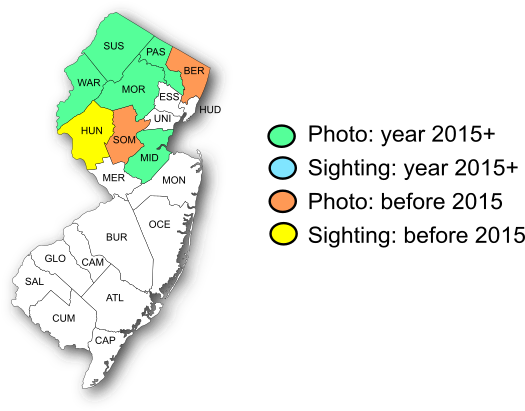
Habitat: Mostly open, sunny, wet meadows, but sometimes in upland fields.
Flight Period: One brood, early June to early August. Extreme dates: 6/2—8/2.
Caterpillar Food Plants: Early instars feed on Turtlehead (Chelone glabra), a native wetland plant. After overwintering, caterpillars may feed on a wide variety of plants including plantains (Plantago), ash (Fraxinus), viburnums, penstemon, and honeysuckle (Lonicera).
Overwintering Stage: 4th-instar caterpillar.
Good Locations: Kittatinny Valley State Park.
Comments: In flight this species appears rather dark and not very exciting. But be sure to follow it until it lands as only then will you appreciate its striking colors.
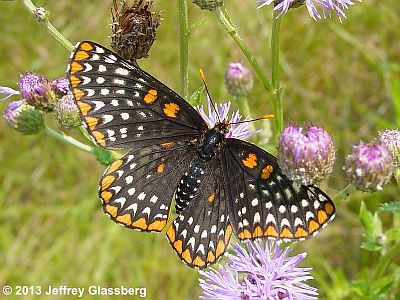
Appalachian Trail Lands (Canal Rd.), Sussex Co., NJ, 6/30/02, on Canada Thistle.
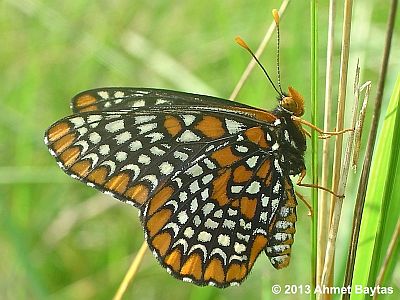
Appalachian Trail Lands (Canal Rd.), Sussex Co., NJ, 6/16/04.
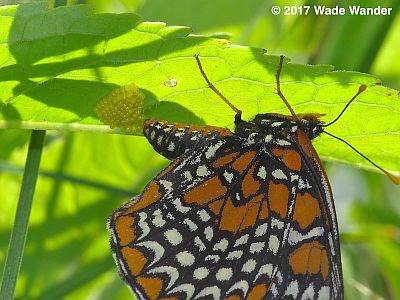
Laying a batch of eggs on the underside of a White Turtlehead leaf, Walpack, Sussex Co., NJ, 7/4/17.
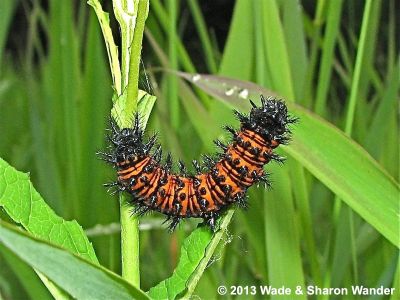
Late-instar caterpillar.
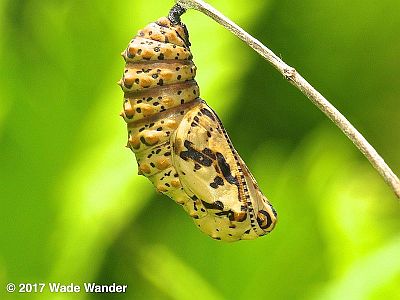
Pupa, Walpack, Sussex Co., NJ, 7/4/17.
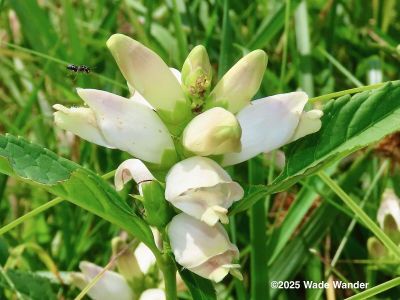
White Turtlehead the host plant for young caterpillars of Baltimore Checkerspot.